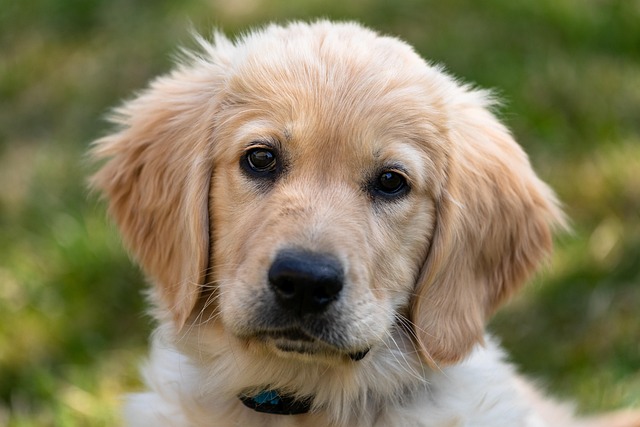
What is glaucoma in a dog?
You might notice your dog squinting more at mealtime or avoiding bright sunlight—these small changes could be early signs of a serious eye condition.
Golden Retrievers are known for their lush, golden coats, but those beautiful fur coats can sometimes hide uncomfortable skin issues. From dry patches to itchy hot spots, these problems can leave your pup scratching nonstop and feeling miserable. The key to helping them find relief lies in understanding what’s causing the trouble and taking gentle, consistent steps to treat it.
Start by pinpointing the root cause. Many Golden Retrievers develop skin problems due to allergies—whether it’s something in their food, like certain proteins, or environmental triggers such as pollen or grass. Fleas and ticks can also irritate their skin, leading to redness and constant scratching. Even dry air in winter or too-frequent baths can strip their skin of natural oils, making it prone to flaking. Take note of when the issues flare up: does it happen after a walk in the park, or after trying a new brand of dog food? Jotting these details down can help your vet narrow things down.
At-home care can make a big difference, but it’s important to stick to safe, vet-approved methods. For mild dryness, a gentle oatmeal bath (avoiding human shampoos, which can be too harsh) can soothe irritated skin. Patting their coat dry instead of rubbing vigorously helps prevent further irritation. If you suspect allergies, try switching to a hypoallergenic diet gradually—sudden changes can upset their stomachs. Keep their bedding clean and wash it in fragrance-free detergent to avoid adding more irritants to the mix.
 Knowing when to call the vet is crucial. If your Golden Retriever’s skin is oozing, bleeding, or covered in scabs, or if they’re losing patches of fur, it’s time for a professional checkup. Vets can run tests to identify allergies or infections, and they might prescribe medicated shampoos, creams, or oral medications. Never try to treat severe skin issues with over-the-counter products without consulting a vet first—some ingredients can worsen the problem, and following proper care guidelines helps keep your pet healthy while staying on the right side of local regulations.
Knowing when to call the vet is crucial. If your Golden Retriever’s skin is oozing, bleeding, or covered in scabs, or if they’re losing patches of fur, it’s time for a professional checkup. Vets can run tests to identify allergies or infections, and they might prescribe medicated shampoos, creams, or oral medications. Never try to treat severe skin issues with over-the-counter products without consulting a vet first—some ingredients can worsen the problem, and following proper care guidelines helps keep your pet healthy while staying on the right side of local regulations.
Grooming habits play a role in preventing future skin problems, too. Regular brushing removes loose fur and distributes natural oils across their coat, which acts as a protective barrier. During shedding seasons, brushing more often can reduce matting, which traps moisture and leads to hot spots. Avoid shaving their coat too short, especially in sunny weather—their fur protects their skin from UV rays, and exposed skin can get sunburned or irritated by dirt and debris.
Preventing skin problems often starts with their diet. Golden Retrievers thrive on balanced nutrition, and a diet rich in omega-3 fatty acids can help maintain healthy skin and a shiny coat. Talk to your vet about adding fish oil supplements or switching to a food formulated for skin health. Fresh water is just as important—dehydration can make skin dry and more susceptible to issues.
Helping your Golden Retriever overcome skin problems takes patience, but seeing them stop scratching and start wagging their tail freely is all the reward you need. By staying observant, sticking to gentle care routines, and working with your vet, you can keep that golden coat looking and feeling its best.

You might notice your dog squinting more at mealtime or avoiding bright sunlight—these small changes could be early signs of a serious eye condition.

Let’s set the scene: It’s a sweltering Phoenix afternoon—105°F outside—and you rushed your 2-year-old Lab mix, Cooper, on a quick walk to “get it over with.”

Let’s get real: You’re in your Miami apartment, watching your 3-year-old Corgi, Loki, struggle to climb the stairs to your second-floor unit.

Many dog owners brush off occasional scratching as just “dog behavior,” but persistent itching often signals something more—like a food allergy.

You might first notice your dog scratching more than usual—chewing at their paws until the fur looks thin, or rubbing their face against the couch nonstop.

Let’s be real: You’re standing in your Chicago apartment, watching your 3-year-old Beagle, Max, huff and puff just to climb onto the couch.